Glossary: Banmal
by girlfriday
While Eun-jo never called Ki-hoon “oppa,” she certainly used her share of banmal with him
One of the things I find endlessly fascinating about the Korean language is the magnitude of what people call each other, and how they address one another as relationships evolve. As javabeans noted, in romantic comedies, we often squee equally over kisses as we do over the first time characters use banmal with each other. So what is banmal, and what are the rules? How can banmal be rude in one moment, and romantic in the next? Who gets to use banmal, and why is it meaningful when characters switch from jondae to banmal?
Banmal is informal or familiar speech, and the literal word can be translated as: “half” and “word/speech.” It’s half-speak, or jondae cut in half. It’s not so much the volume of words that’s cut, although banmal does require fewer words to convey meaning. It’s the formality and the extraneous polite address that can be pared down when using banmal.
As a general rule, people who are: 1) of the same age or older than you, and 2) familiar with you can use banmal.
The clearest delineations are within families. Anyone who’s older than you in your family will use banmal with you. The reverse is a little trickier. If you’re the younger person, when can you use banmal?
Within immediate families, siblings use banmal with each other. Some people who are more distant with their parents use jondae, while most close families use banmal with parents. I speak to my parents in banmal and will continue to do so my whole life. There is also a generational difference, because while I use banmal with my parents, they use jondae with their parents.
But there’s no hard and fast rule, even with family members, because banmal is used only when you feel that level of comfort with someone. For example, in Cinderella’s Sister, Ki-hoon uses jondae with Ki-jung, although they are brothers. In Coffee Prince, Eun-chan uses banmal with her mom, since they are very close. (This is common in most mother-daughter relationships and is, for instance, far more common than the use of banmal between father and son.)
The family rules can be applied to any sort of external group as well. Think: crime families, groups of mixed-aged friends at a university, a team of co-workers. Naturally, anyone who is older or in a position of authority (the hyung-nim, the sunbae, the boss) will use banmal, while everyone else will speak in jondae.
In Pasta, Yoo-kyung uses banmal with Hyun-wook, thinking he’s the new kid, below her on the totem pole. This assumption, regardless of age, allows her the freedom to use banmal. That is, until the next day, when Hyun-wook is introduced as the new Head Chef, at which point the roles are reversed. Chef now uses banmal, while Yoo-kyung switches to jondae.
When you’re a kid, things are simple: you use jondae with adults, and banmal with other kids. As an adult, banmal is used only with people you are familiar with, having already established that you are on banmal terms. You would never start out an interaction using banmal. Not cool.
So how on earth do you establish banmal terms? Cutting down to banmal requires a tacit agreement to do so, by both parties. Usually there is a conversation, or one person does so experimentally, seeking approval to speak comfortably. The general rule is, you must get permission to do so. Once jondae is cut, there’s no need to go back.
For example, in Coffee Prince, Eun-chan has only met Han-seong a few times, so they still speak to each other in jondae. But when they get friendlier and she finds out that he’s 31 versus her 24, she tells him to “lower his words,” which he does immediately. This is an example of the most common way to get to banmal.
If you are identified as older, you have more freedom to cut your words. Han-kyul, in contrast, uses banmal right away with Eun-chan because a) he thinks she’s a dude, and b) he thinks she’s a punk kid on top of it all. Here again, gender relations come into play, because note that Han-seong starts out using jondae despite the age difference because Eun-chan is a girl. Whereas Han-kyul uses banmal comfortably, thinking that Eun-chan is a guy.
Now, in a romantic relationship, these differences take on more significant meanings. Whether or not a couple uses banmal with each other speaks volumes about where they are emotionally, and how comfortable they feel around each other. If one party is older, then the older one may drop the formalities as a sign of closeness. And very commonly, men will cut to banmal first.
In more traditional couples, men/husbands use banmal while women/wives use jondae. I know. Don’t hate mail me. I didn’t invent it. Personally, I think it should be all or nothing, and none of this in-between stuff, especially if you’re married. But this is still the dominant practice in traditional couples, as being the man or head of the household gives one an elevated status in a patriarchal society. It’s not so much that doing it one way or the other is right or wrong; here it’s a matter of choice, and it reveals what sort of dynamic is in play within the couple.
But the reverse is true too, in that a girl’s got some power in how she chooses to wield jondae/banmal. In Boys Before Flowers, Jandi uses jondae with Ji-hoo sunbae and the rest of F4, indicating respect (since they are older). But she refuses to give Gu Jun-pyo any respect, because she finds him hateful. She therefore strictly uses banmal with him, which is frustrating to Jun-pyo, who is used to the entire world kissing his feet and cowering in his presence.
Similarly, in Cinderella’s Sister, Eun-jo uses banmal with Ki-hoon in a deliberately disrespectful way. It’s different from Hyo-sun’s use of banmal, since she always calls him oppa. But we all know Eun-jo would rather die, so she speaks in banmal knowing that she’s overstepping her bounds.
Using banmal goes hand in hand with how people address each other. If a couple is roughly the same age, they will start out calling each other name-sshi and speaking in jondae. Once you get to banmal, name-sshi becomes name-ah or name-ya (which are both equivalent and based on consonant/vowel, just like “a tree,” “an apple”; eg. Eun-jo-ya, Ki-hoon-ah).
Here’s the main difference between jondae and banmal: there’s no way to say “YOU” in jondae. Only in banmal. Jondae is built structurally so that you cannot address an elder directly in the second person. So even when you are speaking to your teacher directly, you will be saying something like, “I will give the assignment to Teacher,” or to your mom: “Mom doesn’t get me.” It’s weird in English, (which is why this difference is lost in translation) but the distance is built into the language on purpose in jondae. Titles, like “Mom” will always keep that distance in speech, no matter if you use banmal.
But with friends, colleagues, significant others—anyone you call by name, once you cut to banmal, you can say the equivalent of “you,” so that you can speak to each other without the third-person address. So you could say to your friend: “You suck.” No titles, no frills, no referring to each other in the third person.
This may seem like a small change, but it’s a world of difference in personal interaction. Imagine if Ki-hoon continued to use jondae, as he does when he first returns after his eight-year absence: “Eun-jo-sshi is awful.” It’s a totally different feeling from the very direct: “You awful girl.”
Think of it this way too: “I love Ki-hoon-sshi,” vs. “I love you, you silent, noble idiot!” Okay, that last part was editorialized, but you catch my drift. There are middle ground ways around this, of course, like the use of endearments + jondae, or opting out of direct address, but this is the basic structure of jondae/banmal.
The colloquial words Koreans use in order to cut formality reveal a lot about their feelings towards jondae vs. banmal: “drop, lower, cut, peel, pare, strip, subtract, reduce, ease, relieve, release, let go, set free, liberate.”
The most common phrase used when suggesting banmal is to “speak comfortably” or “plainly.” There’s a reason—using banmal actually frees up your speech. There are just things that are impossibly difficult to express when speaking in jondae. It’s a cultural perspective, to be sure, that jondaemal feels restrictive and formal, and that it creates a distance between speakers.
Conversely, using banmal actually makes people feel comfortable—it puts speakers at ease, because by cutting formalities in speech, you’re actually agreeing to be more open, free, and say whatever you please. It’s like a social contract, that if we’re in a banmal-kind of relationship, we’re cool to say what we really think. Of course it also says to the world that we’re close.
Which is why it’s a significant milestone in the drama couple’s journey. Even if it forces you to endure someone dissing you for the first time ever. That’s right, Gu Jun-pyo. I’m talking to you.
RELATED POSTS
Tags: Boys Before Flowers, Cinderella's Sister, Coffee Prince, Pasta
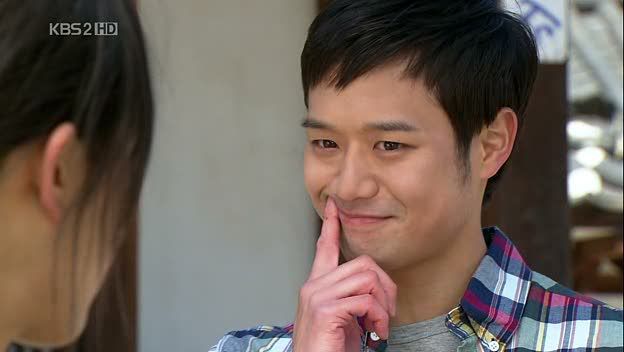

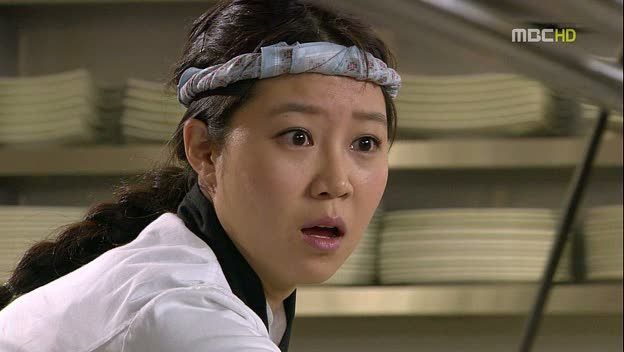
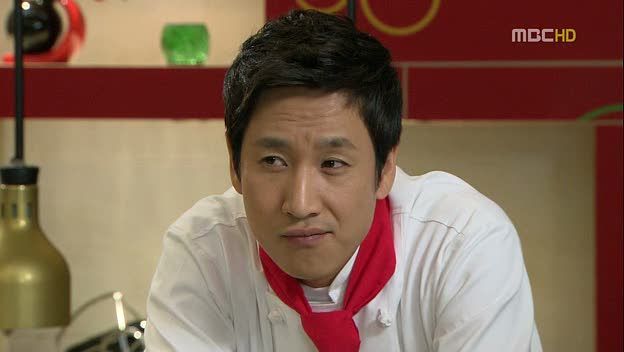
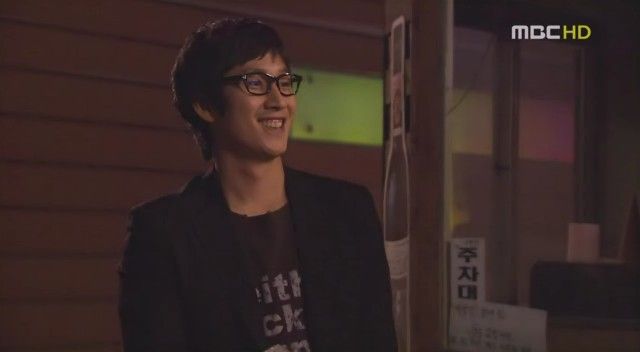
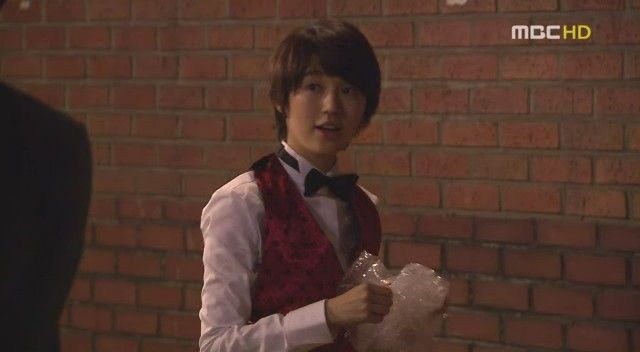
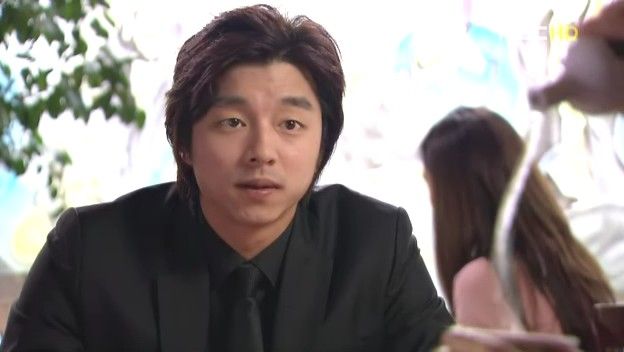
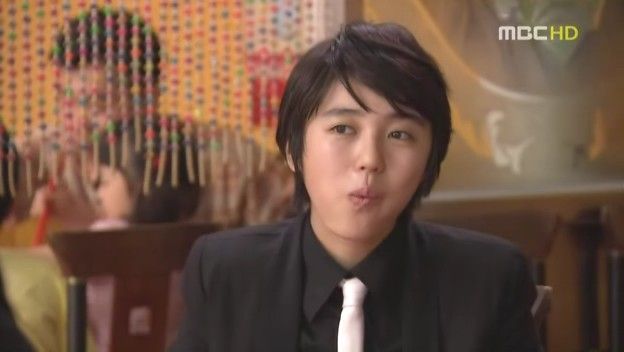
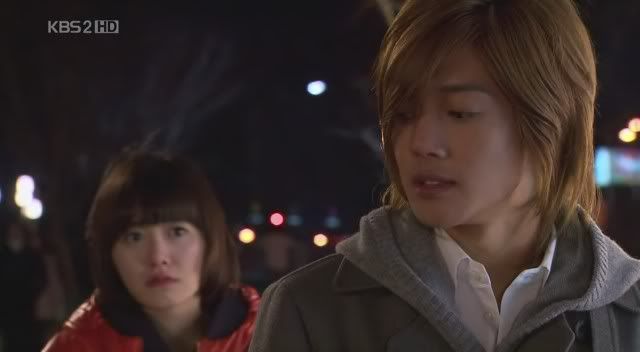



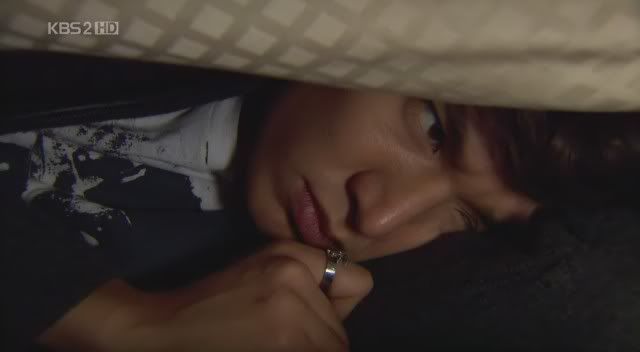
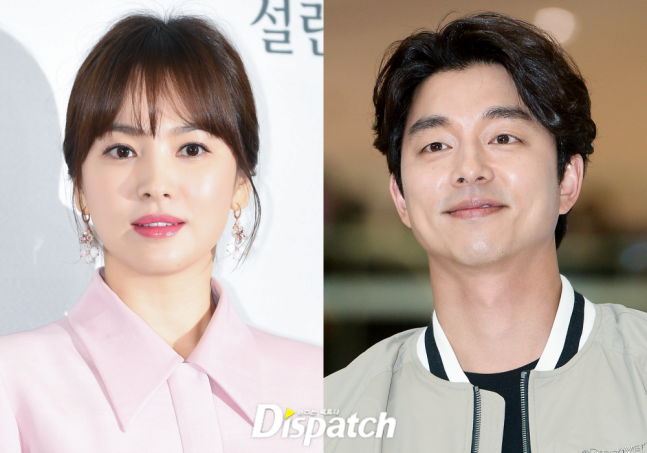
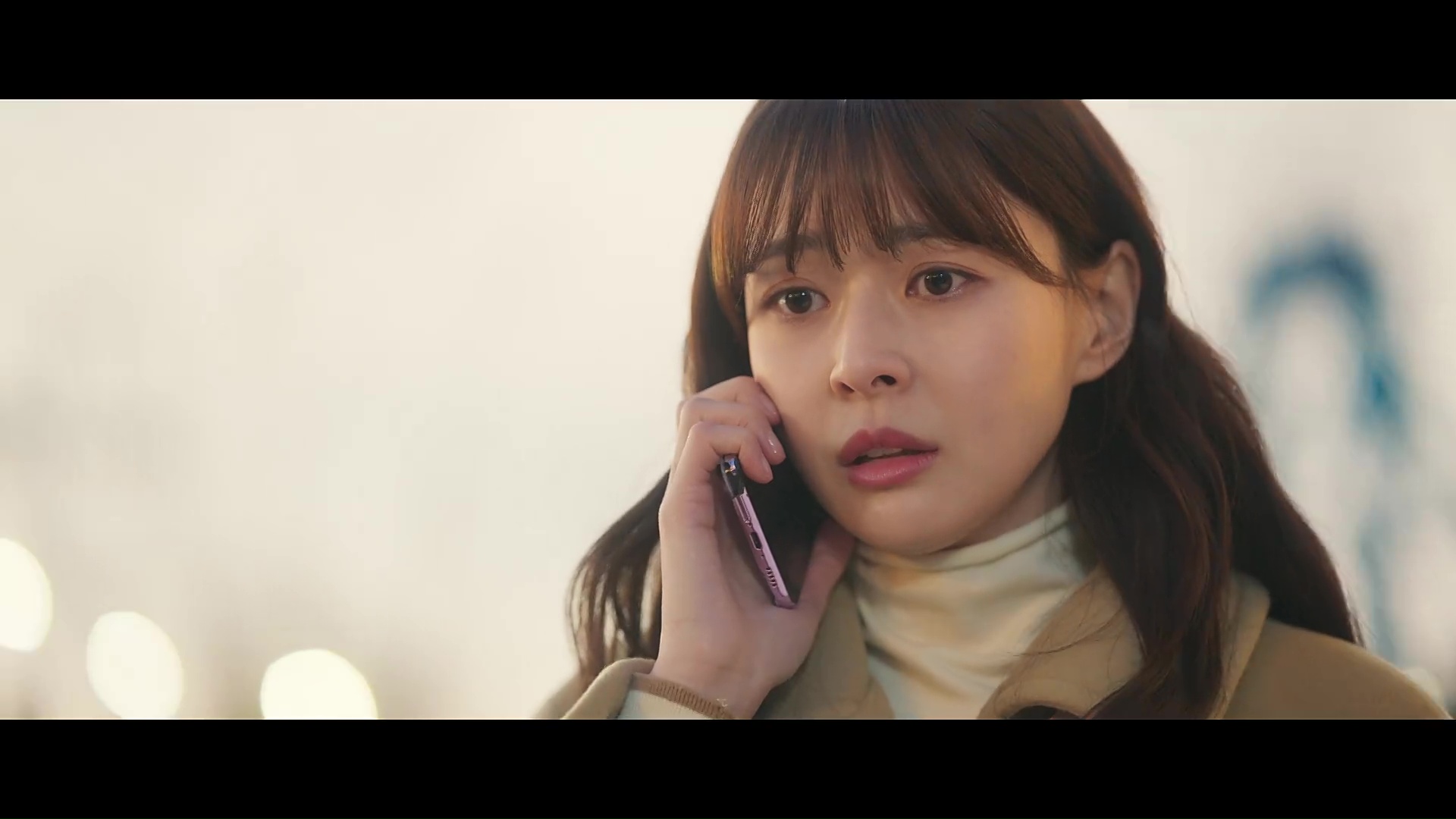
![[K-drama Treasure Hunt] Heart-fluttery bottle opening](https://d263ao8qih4miy.cloudfront.net/wp-content/uploads/2023/05/Kdrama-treasure-hunt.png)
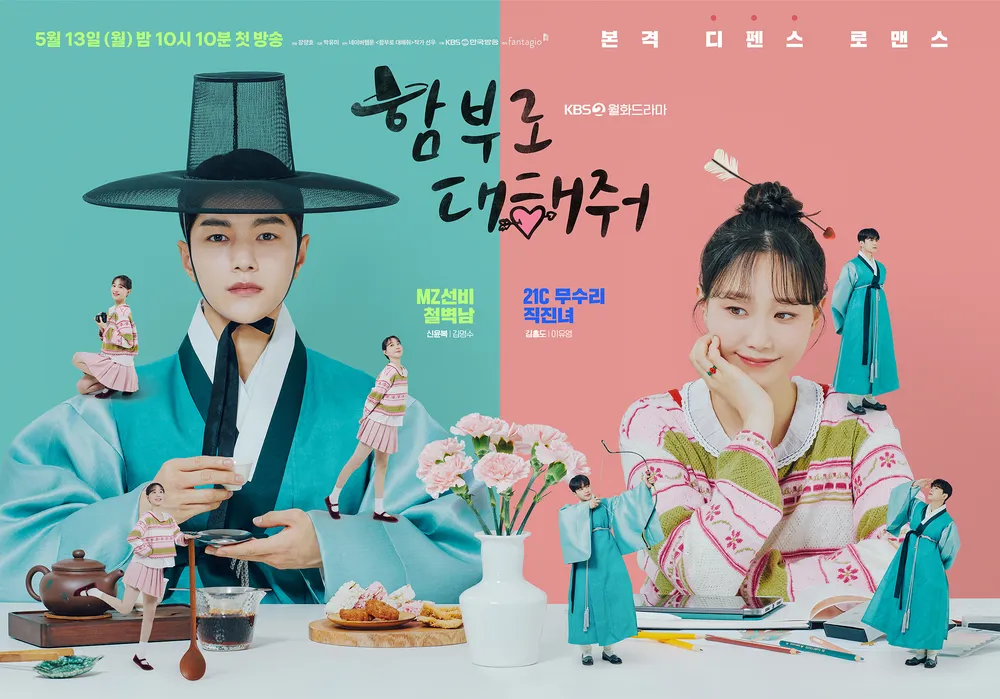

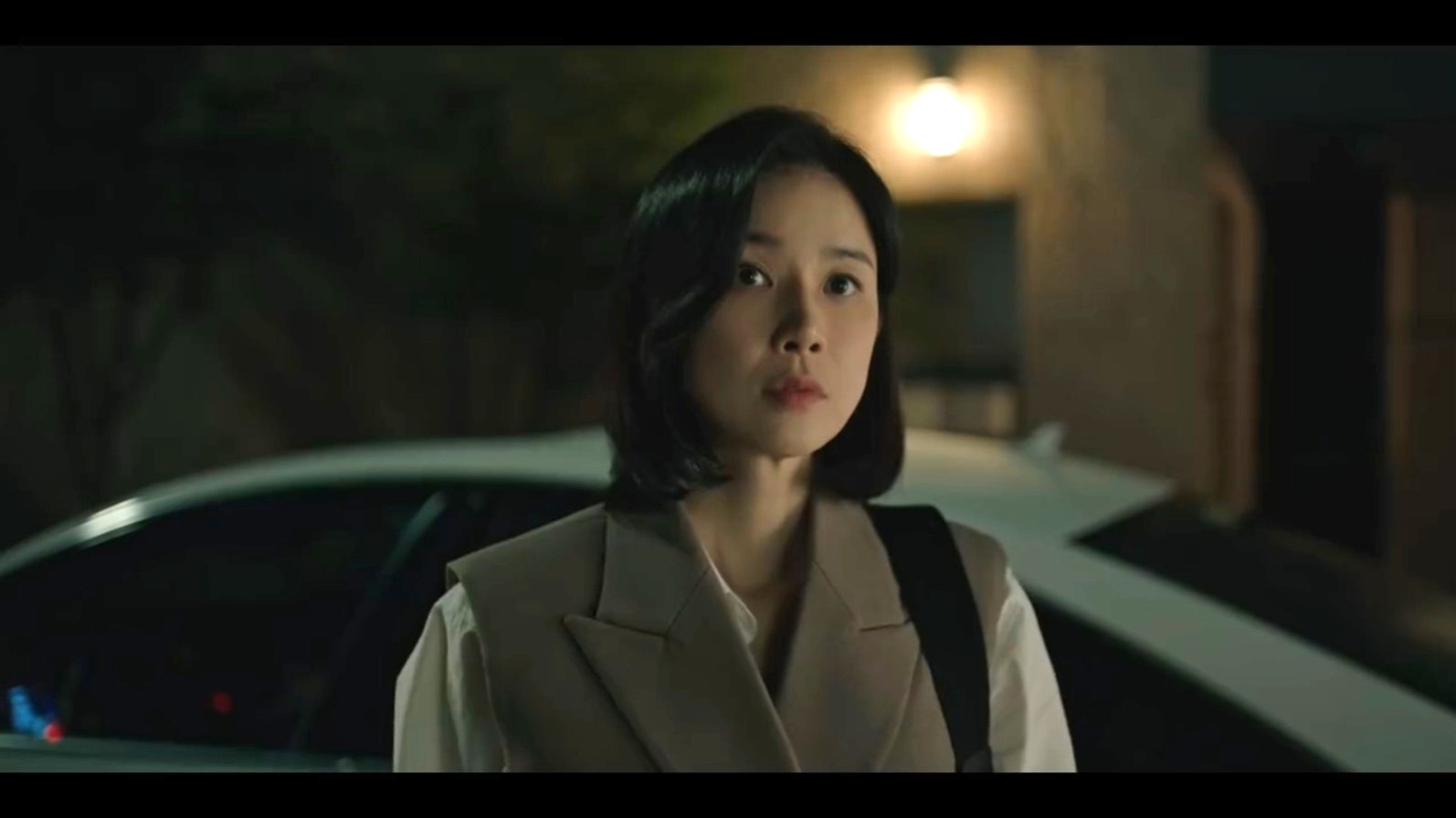
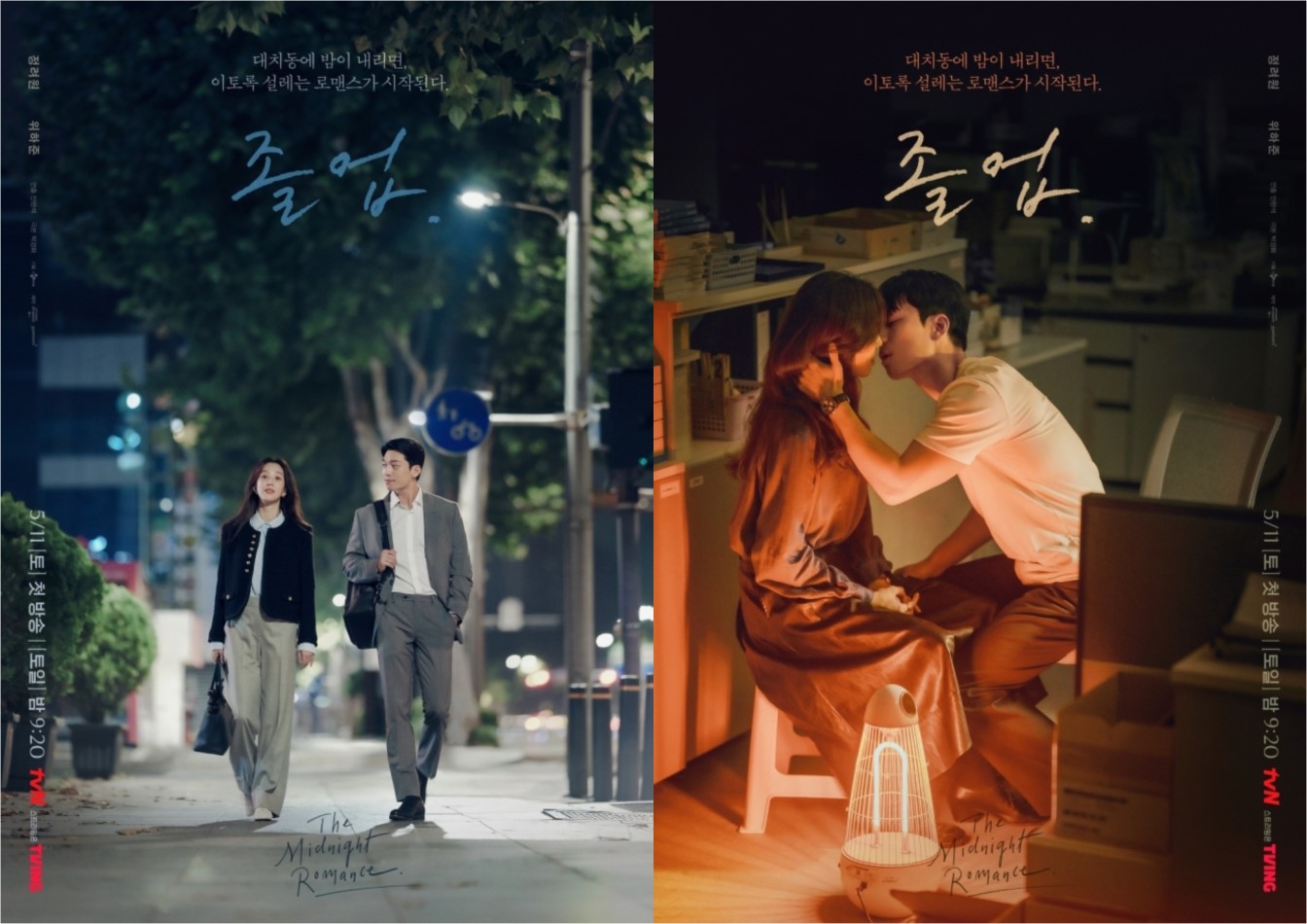
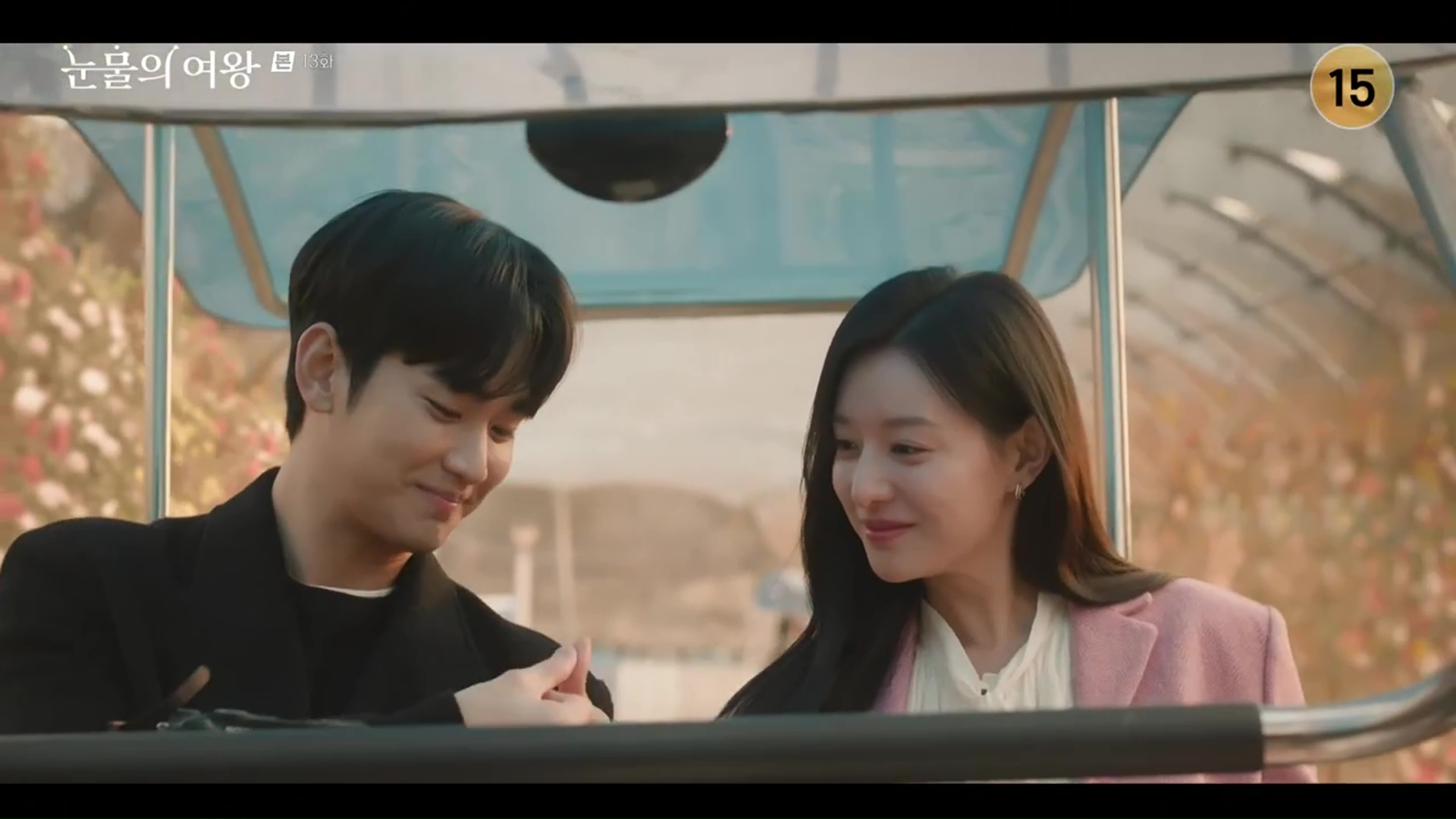
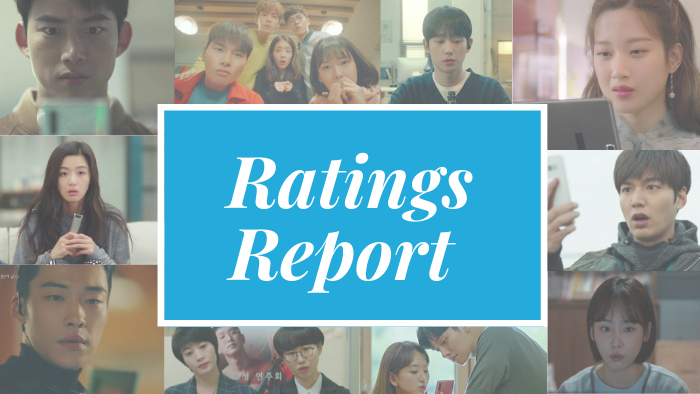
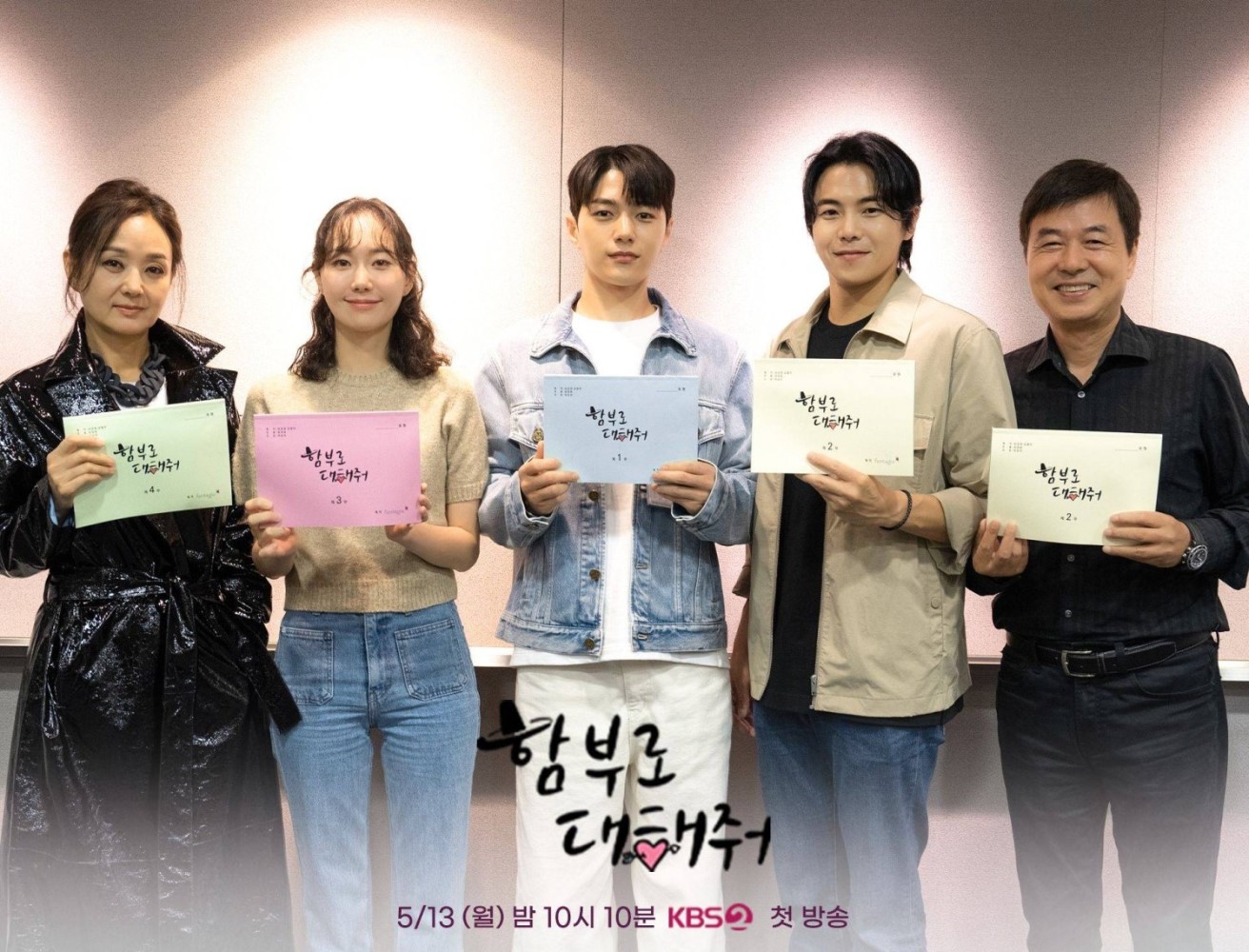
Required fields are marked *
Your email address will not be published. Required fields are marked *
51 sallynally
July 13, 2010 at 11:08 PM
Haha, sorry for so many posts, but I promise this will be my last one.
As I was reading the responses of many of the people here, I found it unfortunate that so many people simply equate the switch from jondaemal to banmal as romantic, and respond with questions such as "why don't so and so speak in banmal since they're dating?" I'm not arguing it's right or wrong to think that way for I too had my squee moment when a drama character who spoke in jondaemal suddenly switched to banmal. However, depending on how jondaemal is used, it can be used very romantically (and this is coming from a hopeless romantic dramafreak) because jondaemal used between a couple can be used to convey very sappy language. It just saddens me that non-native Korean speakers won't be able to pick up on that subtlety. Sigh.
On a side note, I find it the most sexy when a couple who speaks in jondaemal to each other briefly switches to banmal when speaking about a serious topic (Lawyer Seo did this a few times in Prosecutor Princess.)
Required fields are marked *
52 Laeah
July 13, 2010 at 11:28 PM
@48 - Because it's Korean (konglish), not English. It's a borrowed word, but it IS Korean. So they wouldn't understand if you spoke English, because it's really not the same thing.
Like how in English we borrow literally thousands of words from the romantic languages and germanic languages, and even though they look and might sound similar in some cases, they are still two different languages.
So you shouldn't try to pronounce it the "English" way. It doesn't make it more proper.. it just means you are using English.
Required fields are marked *
53 Laeah
July 13, 2010 at 11:39 PM
@51 - 그대 Is more closely translated like... "that person" rather than "you". It's translated to "you" often because the use is similar to how we use "you".. but I still wouldn't literally translate it as "you" because it's really more like a pronoun that is used as a place marker instead of a name when you are talking about someone than specifically saying "YOU!". Again, it's hard to really translate 100% because of certain nuances. I've mostly seen it used in songs/writing. Rarely have I heard it in conversation.
당신 definitely is more closer to "you".. but it's not only used in a purely romantic sense either. It can be said to a stranger. It's simply left out a lot because saying "you" is still rather not necessary or not done culturally in Korean language. In a romantic sense I've heard it most often between husband and wife of a usually older couple. I do find it romantic in that sense, I suppose. I think it's really fun to watch older couples who are quiet with their affections but that you can clearly see the love between them. The Korean language is actually rather beautiful and poetic, especially jondaemal. But much of it is being forgotten now with all of the Konglish being introduced and so much shortening and contracting of the grammar... even in writings.
Required fields are marked *
54 blahblahblah
July 14, 2010 at 12:08 AM
Interestingly, informal vs. formal language is usually brought up in kdramas, so I sort of got what they meant and etc. However, these articles are really fun to read about, especially with all the examples and references to k-dramas. It's nice to read a more in-depth look, so keep 'em coming! Thanks (:
Now off to watch Coffee Prince!~~
Required fields are marked *
55 sallynally
July 14, 2010 at 12:46 AM
@54,
I can see why you would think geudae would be translated as "that person" because it serves as a place marker for what would otherwise be the person's title. However, exactly because geudae (그대) can only be used when speaking directly to whom the speaker is referring to as geudae and that it is general and not a title (for instance, like using 선생님 when speaking to a teacher), wouldn't you say it is serves the exact purpose of "you" in english?
As for dangshin (당신), I know that it can be used in other settings, such as between strangers, but when used between a couple, it carries a romantic undertone. Perhaps it rings truer to me because I grew up listening to late 80s/early 90s Korean ballad singers, and the romance those words conveyed in those songs. I remember watching an interview with actress Kim Jung Eun where she shared that she personally preferred older Korean love songs exactly because they tend to use jondaemal and she felt the use of words such as geudae or dangshin just made the love more 애틋해. (Btw, that's why she chose to sing the song 나 항상 그대를 in "Marrying the Mafia"). I guess I belong to the rare breed of 20-something Korean females who belong to this camp? Also, those words are definitely not only used among older Korean couples. I just recently rewatched "Glory of Family (가문의 영광)" and the main couple there (Park Shi Hoo and Yoon Jung Hee) use it there, even after marriage. I've seen many "young" couples (in their 30s) use it in family dramas as well, although I agree that it is a dying trend.
"The Korean language is actually rather beautiful and poetic, especially jondaemal." <-- To borrow your quote, this is exactly what I tried to convey in so many words, which you succeeded to do so much more briefly. =)
Pheww, that was long! Haha, I guess this again shows what a difficult job translating truly is... or that I'm just really wordy!
Required fields are marked *
56 Northern Star
July 14, 2010 at 12:53 AM
Thank you for the explanation girlfriday. It was very informative.
Something learned today.
Required fields are marked *
57 Laeah
July 14, 2010 at 1:44 AM
@56 - Okay.. so I guess you are right.. I just always in my mind thought it would be a bit separate from "you" because of the generality. The way it was described to me I guess was a bit off. :)
As for jondaemal being romantic.. I do agree that it would be. I LOVE older Korean songs much more than new ones because I feel they are so much more emotional and expressive. Just listening to them (I'm not to the point yet of where I can understand everything because of all the vocabulary.. but I can understand a lot of phrases) with my basic knowledge, I can feel the sense of emotion.. as you said. More 애틋해 as you say. I love trot and the older generational songs. Even the ones that aren't love songs but simply about Korean life in general are so very passionate.
I think people often think that jondaemal = restrictive and formal and stuffy. But it's just a politeness level, not a restriction on the language. Pretty much any verb can be said in any tense so it's not like the meaning will really change except for the feeling/context. The thing about jondaemal is that it can get really flowery. And even though it might seem like too much sometimes, the imagery is amazing. Korean in general has so many specified words that you can really really get the exact image of what is being said. So when you are reading a poem or love letter, it's very vivid and it's almost like looking at a photograph of someone's feelings. :) I guess that's how I'd put it.
Speaking of 가문의 영광.. (one of my favorite dramas ever!!) that is a really good example of it. Just because they used jondaemal didn't mean their love was not passionate or intense. It doesn't mean both of the people in the relationship are strangers or not close, but sometimes it can just show how much respect and reverence they give to each other. I love that drama in general, but especially their relationship. It was ridiculously sweet and inspiring. I started watching it in Korea and I finished back in the states and rewatched with subtitles to get a better understanding.. but I felt that in general they were a couple with a lot of chemistry~! The other side couples were awesome too.
I'm pretty young I guess (21) so most of the Korean I learned was younger. But I still hung out with families during holidays and special occasions and when I was doing my homestay with my friend. So I did get to see some older gens in action. But as much of a homogeneous society as Korea is, I saw a lot of variety in couples and relationships in general.. but overall, I haven't seen the jondaemal situations between spouses other than in dramas.
Haha, no I enjoy it too! :) I'm a word nerd. I loooooove linguistics and etymology. So I find the subtleties and differences in translation to be fun to learn and interesting. Korean especially is a really lovely language. Especially Hangeul! I think it's far too overlooked.
Required fields are marked *
58 Larissa
July 14, 2010 at 4:46 AM
"Jondae is built structurally so that you cannot address an elder directly in the second person."
This is very interesting. I'm from Finland and my native language is Finnish, I've also studied translation and find the cultural differences of languages fascinating. In Finland in the first half of the 20th century people never used the second person singular while addressing each other if they weren't siblings or very close friends. They either used second person plural, which is still in our language today and should be used to address people much older than you, or the third person in the same way as in jondae. Now this latter sounds very old-fashioned in modern Finnish but it's very common in old movies from that time.
We still have some of the polite speech left in the use of the second person pronouns. In English there is no distinction between you the singular and you the plural but in Finnish we have sinä and te. The plural is used to address older people (or a group of people). It sounds very rude if a teenager says to a senior citizen "you"! This distinction is in many European languages such as the other Scandinavian languages Swedish, Norwegian and Danish as well as German and Spanish. That's why I sort of get the distinction though the Koreans take this politeness to different level altogether.
On the other hand, we in Finland have two ways of speaking as well. There is the proper, grammatically correct Finnish which is used in news reports, newspapers and literature and the way people actually speak to each other which is nothing like the written Finnish. It would sound really strange if we started to use grammatically correct Finnish in everyday conversations or meetings. On the other had it would be stranger still if the news anchors would drop it.
Thanks you GF and JB for very interesting posts. Languages are so fascinating...
Required fields are marked *
59 Ar-Feiniel
July 14, 2010 at 6:00 AM
This whole jondae/banmal issue is very interesting. Come to think of it, Polish language is kinda similar in this aspect. We also have casual and formal speech and age difference and status (not so much gender, although in theory guys are more courteous toward girls) determines how we address each other, what vocabulary we use and how we speak. For example: I could never address someone I don't know/barely know (unless they're my age) or older family member like grandmother/mother directly "you" (unless I intend to be rude). But at the same time I have no problem talking to my mom in a (semi) casual style and using casual vocabulary. Another example: I had a hard time addressing my boss "you" cos he's about twice as old as me, but since he insisted on it, I had to do it, despite feeling uncomfortable with this at first.
I know the significance of addressing each other using sshi or ah/ya and different titles, thanks to javabeans' recaps of "The Woman Who Still Wants to Marry" (otherwise watching "fake family" scenes in "Call of the Country" wouldn't be such a hoot), but I wish I could actually understand Korean enough to know when the characters use different kind of speech.
Thanks a lot for a glossary!
Required fields are marked *
60 dramaville
July 14, 2010 at 6:02 AM
curious about kimchi and soju. hope they can become part of your glossary.
also, just wanna mention that the honorifics go mi nyu a.k.a. go mi nam used in you're beautiful is really cute. too bad can't be translated to English not
Chinese mandarin. And on hwang tae kyung's birthday where GMN hugs her, he was surprised and touched and being true to his character, the words that came out of his mouth were don't informally to me. Cute.
Required fields are marked *
61 Mars
July 14, 2010 at 6:24 AM
These glossary entries are a *genius* idea. The nuances of language! Amazing. You guys are awesome for keeping this up!
I speak Spanish and there are formal/informal terms as well. Since I speak Spanish mostly with my close family, it's difficult talking to a stranger in Spanish and trying to speak formally. It gets murkier when speaking to people who hail from different parts of Latin American, the Caribbean, or Spain. I have loads of "how we say [x] they'd say [y]" type conversations with my dad when I encounter words/phrases I've never heard. Not exactly the same as Korean but I definitely understand and appreciate the sheer amount of ways to say things!
Hmm, I second dramaville's interest in Korean food culture in dramas, though I'm thinking that would that be more appropriate in as an entry in the pop culture series?
Required fields are marked *
62 CSFan
July 14, 2010 at 6:56 AM
Thanks for the explanation, although I am still really confused about Banmal and Jondaemal. Will you have a separate post explaining all the name-shi, name-ya and so on?
I am effectively bilingual in both English and Chinese but I don't speak a single word of Korean. Anyway one of the first Korean dramas I've watched was Accidental Couple and I got REALLY confused by the use of 'shi' in that drama. Throughout the drama, Ji-soo and Gu Dong-baek kept referring to each other as Ji-soo-shi and Gu Dong-baek-shi. I watched the drama in English subs first and how they translate is Ji-soo-shi and Gu Dong-baek-shi. This didn't bother me much as I assumed it to be similar to the Japanese name-kun and name-chan.
Then I got hold of the Chinese subs for this drama and the names are translated as 智秀小姐 and 具冬柏先生 which is similar to Miss Ji-soo and Mr Gu Dong-baek in English. So throughout the drama, our couple is calling each other Miss Ji-soo and Mr Gu Dong-baek which bugs me a LOT. I know they are a fake couple in the beginning but Gu Dong-baek is still calling 'Miss Ji-soo' in front of others. I mean, in my culture, we don't call our spouse Mr so-and-so and Miss-so-and-so unless in a teasing manner (somehow I don't think Gu Dong-baek was teasing) so the whole shi thing really confuses me. In the end I just kind of assumed that it must be a Korean culture thing.
I even checked out the use of the word and from what I can understand, the name-shi is a more formal and polite way of addressing one another. From your article, it appears to be that way too. So the Chinese translation is not incorrect? Even at the end, when Ji-soo and Gu Dong-baek becomes a real couple and much closer, they are still going Ji-soo-shi and Gu Dong-baek-shi, I guess this means they are an old-fashioned kind of couple?
Required fields are marked *
63 kdlover
July 14, 2010 at 8:20 AM
Thanks girlfriday!! Your explanation is soo easy to understand!! Now I can understand better when I'm watching my drama!!
Required fields are marked *
64 mallorn
July 14, 2010 at 8:35 AM
Thank you for this glossary series! I hope these sort of articles continue, as its always interesting to learn about the culture behind our beloved dramas.
We Filipinos have this sort of formal/informal separation in one of our main languages, Tagalog. Sprinkling your sentences with 'po' connotes respect for someone who is usually much older than you (10 years plus, I'd say). It is nowhere as 'strict' as it seems for Koreans, since I have many friends who don't use 'po' even for their parents, but that was the way I was raised. I'm 21 and my parents will still chide me if I don't use 'po' when talking to them. I'm fine with this because I think there's a value in recognizing that although you can basically talk about anything with them (and I consider myself close with them), they are still your parents and deserve respect.
It is also considered more polite/formal to use the second-person plural when referring to a person instead of saying 'you' directly, like what was described in the jeongdaemal article. For example, in picking up the phone, I'll say 'Sino sila?' or 'Sino kayo?' which roughly translates to who are they instead of 'Sino ka?' or 'Sino ito?' which translate to who are you and who is this respectively. If I'm talking to my boss, I'll ask, 'Nandito na po kayo?' or is your group here instead of 'Nandito ka na ba?' meaning are you here. Again, this seems to be tapering off in my generation, as I have friends and officemates who don't do this anymore. I'm always find it a bit jarring at first when I see/hear people my age not doing it, but I guess that's my conditioning coming out. Personally, I find using second-form plural easier on the ears and a way to make sure things are on the right foot.
It must be reiterated though, that these rules are NOWHERE as strict as jongdaemal/banmal. You technically only use these in cases where you want to pay respect, the person is very much older than you, or you're talking to a complete stranger and not sure what their age is (but you have a hunch they're much older than you). I'd never use 'po' or second-person plural with a person my age or only slightly older, even for someone I just met.
wow, this post is long! yay for language discussions! :D
Required fields are marked *
65 missy
July 14, 2010 at 9:10 AM
Love this post, thank you, girlfriday! Very enlightening. :)
I remember asking a non-Korean, Seoul-based friend a few years ago, just when I was starting to get interested in K-dramas, why drama characters seem to add -sshi or -ah at the end of one's name. I don't remember that she was able to explain it as thoroughly as you do here. The nuances of every language is quite interesting. I look forward to reading more of your glossary series. :)
Required fields are marked *
66 bambinos
July 14, 2010 at 9:42 AM
I was born in Japan and Japanese is my first language. The concept of Banmal and Jondaemal is similar in Japanese as well. Banmal is called tameguchi (Tame-slang for same age guchi-mouth) and jondaemal is called keigo (Formal speech). Tameguchi also has gender differences so there's the male/female version. When a female uses a male version, it usually indicates something about their personality. They may like being considered a guy, grew up with brothers, is a tomboy, and so forth.
In Japanese, for the -yo part, it's usually -desu -masu form. And there's sonkeigo (Respect), kenjyougo (Bringing down oneself to give respect), and teineigo (Polite form) in keigo. It can be pretty difficult because you got to be accurate about it or they'll look down on you. But the recent generation is starting to really...not know how to use keigo. So there are those who 'sound' formal, but are grammatically 'incorrect'.
So I guess the system is similar. You can only use tameguchi to someone who is younger, close enough, and have some level of comfort. I start off with keigo at times out of distance and formality (even if we're the same age) and switch to tameguchi if I feel comfortable with them or know them for a while. But I get in trouble at times because I speak in tameguchi to someone whose older than me. Because even though I may be comfortable with them, it does not mean they feel the same way or it's accepted in their mental dictionary.
But sometimes, the older person asks me if we want to drop the formality and talk casually. And I'm like, "Okay~" but sometimes I retain some formality and mix in some casual style so there's some closeness but I respect their status. Sometimes I'm the older one so I just say, "I don't like having formal ways of speaking. Let's talk casually." And with my parents, we talk to each other informally.
But, I def. try keeping the keigo with someone who I work under or have to keep a certain distance. It would be awkward for me to use tameguchi in that kind of situation.
And the -sshi, -ya, -ah is similar in Japanese as well. It's (last name)-san (-sshi) for polite. Sometimes first name -san as well. And for the tameguchi, it's -kun (For boys/guys), -chan (For girls/little boys, it's more a way to address a child), and sometimes just the regular name calling without anything attached. But somehow I rarely do that. If I know someone around my age/younger, I tend to say -kun or -chan depending on gender. But if it's older, I'll maybe call them by first name -san because I've known them for a while. But if not, it's last name -san.
Theres more but I wrote too much XD. This glossary was very informative though. Thanks for all of these~ excited for more.
Required fields are marked *
67 arwenarya
July 14, 2010 at 11:37 AM
wow... its nice that not only the Korean culture im learning but also Japanese thanks to bambinos.its really a good thing reading the comments of other people because aside from being entertaining its also educational....keep up the good work GF and JV....
Required fields are marked *
68 Laeah
July 14, 2010 at 12:14 PM
@67 - Yeah.. I'm so glad I studied Japanese (it was the only language they offered at my school besides French.. which I hated) before I studied Korean. It's so helpful because the languages are so similar! I'm sure I would have been confused as hell if I'd tried to learn Korean without it.
The 씨 (ssi) vs. 야/아 (ya/a) thing just simply depends on how close you are to a person. Of course there will be exceptions, but I've most often seen "ssi" used between coworkers.. and in work situations. It's basically because saying just someone's name sounds a bit awkward in Korean.. Especially if you are talking to someone older or someone you don't know very well. So to be polite they will add "ssi" which is basically Mr./Mrs./Miss. It's just a way of showing respect for people who's name you do know.. but you aren't close with. (If you don't know their name.. you would just call them by the family name as in - ajusshi, ajummah [komo/imo/samchoon if you are being extra nice], oppa, etc.. or you would call them by their title if you know it... sonsaengnim, etc) It can also be used to create distance between you and someone else if you don't really like them or want to be particularly close to them.
For ya/a.. that is when you are close to someone and it's a rather affectionate way of saying their name. Mostly it's said from older to younger.. It would be a bit weird for someone younger to say it to someone older unless they were really really close. Usually the younger person will always refer to the other as oppa or if they are the same age.. by name with the little "ya/a".
You use "ya" if the name ends in a vowel. "a" If it ends in a consonant.
So in a drama.. if you see a guy suddenly call a girl by name with "ya/a" and the girl looks all happy, it's because they guy is basically saying "I'm really close to you/I feel really affectionate toward you.. etc"
Required fields are marked *
69 Eeefu
July 14, 2010 at 5:00 PM
Thanks peanut butter and Laeah for your responses and great advice - I can remember hae-sa-yo, yes I can. :)
My dream is, one day, I can watch k-drama without relying on any subs at all and can get the full meaning of what the writer is trying to convey.
Thanks for the extended glossary posts, JB and GF! Who said entertainment can't be educational, informative and constructive. :)
Required fields are marked *
70 nycgrl
July 14, 2010 at 5:11 PM
@Laeah
"So you shouldn’t try to pronounce it the “English” way. It doesn’t make it more proper.. it just means you are using English."
In case of "slippers" or even "white shirt" which actually came to korea by way of japan I could understand that since the two words don't remotely even sound like the word of origin but not coffee. My brother wasn't trying to speak it the English way. He is korean-american so that is the way he is going to pronounce a word like coffee. The waiter understood the word just fine but he just chose to think it was condescending, picked a fight with my brother and got his butt kicked. I doubt he would have gotten angry at to a non-korean who would pronounce it "coffee".
Required fields are marked *
71 Hessa
July 14, 2010 at 9:01 PM
Thank you ^^ It's really informative ,I got used to the language differentiation from my experience in Kdramas I think "family honour" has taught me a lot about korea I highly recommend it
Required fields are marked *
72 miharatori
July 14, 2010 at 10:21 PM
Thank you very much! Lol. I'm trying to learn Korean online, but when I speak to my Korean friend she says I'm too formal.
Required fields are marked *
73 Laeah
July 14, 2010 at 10:35 PM
@71 - it doesn't matter if it's spelled similarly or pronounced similarly.
http://en.wikipedia.org/wiki/List_of_English_words_of_French_origin
Maybe this will make more sense to you.. but a TON of words in English are from French origin. Sometimes the word is even spelled the same.. but if you pronounce the word in French, you are speaking French. If you do it in English, you are speaking in English. It's not like you can go to France and use a borrowed French word in English and expect to be understood.
Same thing. "Keopi" is a Korean word, not English. So saying Coffee is technically speaking English.
The waiter was obviously an ass, but your brother still wasn't speaking correctly either.
If you were in America, then it's fine and the waiter was WAY out of line.. but if you are in Korea, it's a bit silly to speak it like the English word...
Required fields are marked *
74 kjohn
July 15, 2010 at 10:12 AM
@9 and @34 -- off topic about fans and closed windows, but this blog site, Ask a Korean, answers many questions asked in this thread, as well as the death by fan. I hope I've put the link in correctly, but I'm not too talented that way, so please forgive if I've goofed. (The Korean also explains method of relieving indigestion which, I believe, was asked on a previous thread.) It's a fun site.
http://askakorean.blogspot.com/2009/01/fan-death-is-real.html
Required fields are marked *
75 pumpkinattack
July 15, 2010 at 12:15 PM
Great read, girlfriday!
감사합니다 ~
Required fields are marked *
76 Indiannomad
July 15, 2010 at 1:16 PM
Thank you for the explanation. I loved reading this. I dont know an ounce of Korean except for a few words I picked up over watching some dramas. Your language is very much like languages from India. When talking to elders or those older than us, we dont address them by name but rather by relationship or a "You" that is used exclusively in respectful speech. Which doesnt have a translation in English unless we resort to "Sir and Madam". That would kill the translation. We have the typical "you" for peer group or same heirarchy levels or with those younger than ourselves...There are instances where an uncle/aunt younger than ourselves are addressed as "Uncle/Aunt". Which sort of goes against the age factor. There is also the tone of voice and appropriateness of words used. There are nuances, just like yours, within body language and words used.
Required fields are marked *
77 Zukii
July 15, 2010 at 6:37 PM
Hey, thanks for doing this post! As somebody who is relatively new to Korean language and culture, this article was immensely interesting and helpful! I just happened to stumble upon this site, but it'll be added to my favourites from now on ^^ Keep up the good work =D
Required fields are marked *
78 nycgrl
July 16, 2010 at 9:29 AM
"but if you are in Korea, it’s a bit silly to speak it like the English word…"
Silly only if you knew already its in fact a korean word and not a co-opted one from another country and being pronounced differently due language limitations. If your a visitor you may not know that.
Required fields are marked *
79 iciviuja
July 16, 2010 at 10:20 PM
I'm a Malay and Korean Language is quite similar to Bahasa Melayu (Malay Language) in terms of speaking it formally or informally, especially in names when you want to call out to somebody. When I started learning English, I noticed the differences between these languages. Even if you're using English formally, you can still use the word 'you' directly making it feels more comfortable or a little less formal. But that's not the case for Malay/Korean/Japanese or many other Asian languages, the use of formality of the language is bigger/stricter. I guess this what makes me interested in learning them in the first place. The strictness and respect adds up to the value of the language.
And thanks for the page. It helps me understand Korean a lot more.
Required fields are marked *
80 Stormofstarzz2
July 17, 2010 at 6:09 AM
Lovely! So much info that helped me to understand a lot.
I understand that a lot of translation into English is difficult due to many words seeming to be un-translatable. I have noticed a lot of what I at first took to be "poor translation"(please! don't flame me, I am new to kdrama) and after a lot of thought, as an older 1st language English speaker (though I have studied many languages, and the syntax and sentence structure alone make my brain hurt at times), though we don't formally have classes and seemingly few honorifics, there are ways to speak politely vs. informally in English, and like many have mentioned here, a lot seems lost to younger generations.
Let me start with YOU- though the use of you is not considered rude in English, the lack of using the word may seem informal at times. Example: Yesterday I was at the DMV and after getting my number ticket, sought out a seat, the only one open was next to an older woman, I formally asked if the seat was taken "May I sit here?" When she said yes, I responded with "Thank You Ma'am" as opposed to "Thanks" and sitting, both because she was a stranger and because she was older. In this case, "Thanks" would have been informal and not very personal, as I choose to "thank(you)" HER personally for allowing me to sit next to her. Adding ma'am also signifies respect. The use of sir and ma'am is still used in many families(children to parents or any other older adult relative)(also should be used with any unknown [not formally introduced] adult). especially in public, even though they may have dropped it in private. I would still never think of addressing an unknown adult (older than me) with out Sir or Ma'am (for fear of being beaten) or at least until being given permission from that adult to do so. Once introduced to each other, I still would use the formal Mr. or Mrs. until given permission not to.
Classes-Though English really does not designate class, the are titles that show position in the community and again are usually used until given permission to NOT do so. For example, Governor/Mayor is always addressed as such, even if they no longer hold office, out of respect for the position held. Even when addressing a Police Officer I would use "Yes Sir Officer" adding the last name if I knew it, but using "Officer" designates respect for his position in the community.
Even in Families the use of titles such as "Aunt" and "Uncle" show respect for that persons place in the family. I remember the first time that my niece decided to use my first name instead of calling me "Auntie Susu" brought me up sharp as I had never thought she would drop my title.
Starting some where in the early 70's I noticed a distinct drop in the use of titles and responding with "Yes Sir" and "No Ma'am" and feel as if there really was a great loss to the English language. As a mother, both my children we taught polite language and still use it today, even with family members though they are both free to use informal at home, they both feel uncomfortable with the use. When I hear them speaking to one another informally I swear they are speaking another language between the slang and street speak they use.
I hope this is of use to some one some where, and that I have not been disrespectful to any one, if I have mis-spoken, please forgive me.
Again, many thanks for all the provided info and for helping me to understand so much.
Required fields are marked *
81 Laeah
July 17, 2010 at 8:23 AM
@79 - Lol. You just don't want to give up do you?
Please go read a Korean dictionary. K. Thanks. 거피 and 버스 are in there. They are BORROWED words, but they are Korean.
Obviously this concept is too much for you to understand. Languages influence other language. More than half of English is borrowed from other languages. Does that somehow make it not English when we speak those words? Uh no.
I lived in Korea for quite some time and it's not like they are trying to speak English when they say it and are somehow too dumb to figure it out for themselves that they are saying it wrong.
Required fields are marked *
82 nycgrl
July 17, 2010 at 8:34 PM
#82
You could have spent a lifetime in Korea and gotten a doctorate in Korean language studies and it wouldn't raise your credibility with me simply because we are arguing about two different things and I suspect you are too stubborn and obtuse to realize that and don't care to hear other people's POV but your own.
Additionally have you ever thought perhaps you have a patronizing tone and that you could explain to us plebs without sounding condescending just because you spent some time in Korea? Stop and listen ever once in a while and you might find you can learn from others just as much as you broadcast.
Last post since I'm not interested in having a fight with someone who isn't mature enough to have a dialog and arguing in cyberspace with anoymous ppl who are more interested in winning and displaying their intelligence rather than having a real discourse is as enriching an experience as getting a root canal.
Required fields are marked *
83 Laeah
July 18, 2010 at 11:33 AM
Lol.
Are you really getting upset about it?
What exactly are YOU arguing about? Since I'm too obtuse to understand. :)
I'm not being patronizing, but obviously you feel the need to get worked up. I'm simply saying that what you think is "crappy English", is actually a part of the Korean language. But apparently... you are talking about something else entirely?
Because if you are merely trying to say that the waiter was a bastard, I agree, it's really not a big deal if your brother uses the English word, especially if you guys are gyopo. (I know gyopo are sensitive about being accepting into Korean society.. because you are Korean ethnically, but still are foreigners and have more expectations put on you).
But your bro still wasn't speaking Korean when he said "coffee". And that was my only point.
And I do learn from others.. if I'm wrong. In this case however..... :)
If it's so bad to talk about what I learned and share it... I guess that no one should ever share the Korean culture.language... because it's too good for us or something? Get over your ego. I'm not here to make people mad. But I'm not going to agree to some opinion that is incorrect either.
Required fields are marked *
84 George
July 18, 2010 at 12:41 PM
"" In more traditional couples, men/husbands use banmal while women/wives use jondae. I know. Don’t hate mail me ""
I know how that feels. I'm a french teacher and I'm trying to teach the kids that well in french you have to make the verb agree. And it agrees differently if the subject is feminine or masculine.
Go and try to explain to a class of 23 pupils among whom 17 are girls that in the french language you might have 99 girls if there's ONE boy you have to make the verb agree with the masculine ending.
Required fields are marked *
L'horreurD'Esther
December 20, 2010 at 3:21 PM
Haha....I know any plural is masculine and not feminine. French is my mother tongue...and I happen to think that it is a very difficult language. I still make the dumbest mistakes.
The French and Spanish language also have formal and informal speech. In French Jondaemal is "vouvoiement" and Banmal is "tutoiement". I use "vouvoiement" with my father and he does so with me. With my mother it's always "tutoiement".
Required fields are marked *
85 dzigh
July 23, 2010 at 9:11 PM
I still cannot distinguish between jondaemal and banmal. *sigh*
Looks like I have to watch more K-drama.
(Yeah, right. Like I need any excuse to go through more sleepless nights for the sake of my K-drama addict :-D)
Required fields are marked *
86 Linda Uchi Garcia
July 24, 2010 at 8:56 AM
thanks for the explaination. i always wondered what that "sshi" and "ah" sound when calling or addressing someone. How interesting! Can't get enough of K-dramas. thanks.
Required fields are marked *
87 Maya
September 3, 2010 at 8:09 AM
Thanks a lot JB & GF for this article. It sure gave me a lot of understanding on how Korean culture works. We actually have the same type/level of speech in Indonesia. When you speak with someone older than you, such as your parents or teachers, it is polite (and extremely common) to address the person in their third person titles. We would never address our parents or teacher or supervisors by the word "you", unless you have a death wish. But it's different when talking with older siblings, some of my friends & cousins will use the third person speech when talking to their older siblings, while I'd casually address my brother with the word you and even call him by name instead of using the word "oppa" (in Indonesia). I think it depends on how close your relationship is or it's just me being a spoiled brat who refuse to respect his older brother.
The level of speech also can be applied to the level of relationship. When a couple just go out, they may refer each other with an informal/slang words for I & you, which will gradually turn formal (it's formal, but it is really common for couples to use this to signify that they are in a serious relationship). But sometimes there are also couples who will call each other with their own name. It doesn't mean that they put respect on each other (as in respecting elder), it just that some might think that it is cute to do that. Seriously.
So the bottom line is: I really wish that I can understand Korean because I understand how this level of speech can add more depth to the drama... I want to squel also when a guy switch into a banmal when speaking to a girl!!
Required fields are marked *
88 mattever
November 9, 2010 at 9:43 PM
Hmmm much talk about informal and formal speech. I think its everywhere except in English but of course royalty maybe used more formal speech. In my own country, we normally will used formal for elderly, guest, teacher or at an official function. It's interesting tho, cuz a lot of Asian country have this formal and informal kind of speech. And know I have a little understanding of banmal and jondae. Went browsing thru this pages coz I was interested at what is banmal is.
Required fields are marked *
89 mamabear
December 8, 2010 at 5:28 PM
I've used only jondaemal to my dad & step-mom (I didn't know that she was not my biological mother) when I was living in Korea. I was very closed to them. I was very open, free, and close to them. And coming to US to live with my biological mother, I had to use banmal to her. My biological mother felt distance from me and my sister hearing jondaemal from us, so she asked us to speak banmal to her. I felt little awkward but got used to it. I don't know if you guys are watching WGM YongSeo, I totally understand why Seohyun having hard time speaking banmal to Yonghwa. It is just how you were raised at home. Speaking jondaemal does not mean that you are not closed to the person.
Banmal and jondamal have higher and lower forms. In jondamal, as the ending gets longer it gets higher. For example: annyung, anyunghaseyo, annyunghashipnikka...
I use banmal to my husband who is 1 year older than me. He gets offended if I use banmal ending with ~ni, ~nya ....
Thank you for your hard work girlfriday and JB. ^^
Required fields are marked *
90 Candy
April 9, 2011 at 8:13 PM
1) of the same age or older than you, and 2) familiar with you can use banmal.
do you mean (of the same age or younger than you) ????
:P
Required fields are marked *
91 Lilian
April 20, 2011 at 12:26 PM
I think when I realised the nuances of the language I realised that it would be better to watch the dramas without dubbing. Subs are much better! I may not understand what they are saying 100% but I can catch the tones and slight differences in banmal and jondaemal!
Required fields are marked *
92 Sarah S.
July 27, 2011 at 6:28 PM
if you and another person were speaking Banmal, and the other person's name was Malay.. would you call them Malay-ya, or malay-ah, since y can be either a consonant or a vowel... that's pretty confusing. I am a newbie to Korean, and actually haven't started learning MUCh about it, so far most of what I've learned has come from KDramas I've watched, but I'm int eh process of getting a few books to help me learn it better lol.
Required fields are marked *
93 Ana96
October 19, 2011 at 8:23 PM
Wow. Thanks.. I live in malaysia and we here have something like banmal and jondae to. Our jondae is used when we are speaking to people older and like korean, there are absolutely no 'you' in jondae. Its a little like this ' teacher, can teacher show me how to do this?' or 'sir, do sir want a cup of coffee?'. We speak jondae to our parents, older people, teacher or people who have more standards and cannot change to banmal forever even after seing our teacher after they resign, lol. Nobody spoke banmal to their family. Our banmal have two type. One is harsh, one is good.
Required fields are marked *
94 Margaritag
January 7, 2012 at 11:38 AM
well its common sense right?I mean you wont talk to someome older than you like you would with a friend of the same age right?The other party might find it offensive.Though i found it funny how if your married the man has the "Power" to talk to he's women using Banmal while the women can't.Talk about equality.I know thats not always the case so dont take me wrong.
Required fields are marked *
95 Junebee
February 23, 2012 at 5:50 PM
This is fascinating stuff to me as 1) a long-time student of a Korean martial art and 2) a new fan of Korean drama. I just started watching "Boys Before Flowers" so I get the references to JanDi talking to any member of F4 (and I love your final comment about GJP, lol. I will look for more instances of jondae and banmal in Korean dramas.
The part about adding -ah to the end of the name is in Chinese culture too. I recognized it because my MIL adds it to the end of my husband's name when calling him by name. For all these years I thought she called him some other name. Then I figured it was a variation on his name. Now I understand. Thanks for the lesson.
Required fields are marked *
96 miishii
February 28, 2012 at 2:10 PM
I'm several years late joining this conversation, but this is one of my pet peeves in the style of subbing.
I've heard enough Korean spoken that I can recognize when jondaemal is used (however I cannot understand most spoken Korean). But subbers invariably will choose to use informal "you, she, etc..." when jondaemal titles are used.
Even I think that there is meaning and impact in accurately translating the words spoken, ie. using the proper name even if spoken in third person. It infers some line of respect or distance that just isn't there in modern English. (However, it was common in middle ages and pre-20th century speech)
It just irks me when the subber has conscientiously made that decision to do away with that level of meaning.
Required fields are marked *
97 Addict
June 28, 2012 at 1:12 AM
Thank you for this insightful post. I appreciate this non-technical and approachable analysis of jondae vs. banmal very much.
Just one more thing to add... I think the dynamic of wife's jondaemal vs. husband's banmal in TODAY'S TIME isn't as much about the patriarchal authority of men as it definitely was in the old times. Instead, it's more simply a reflection of the fact that, well, for many couples, the wife tends to be younger than the husband.
I--though I'm only 23 and feminist and very 21st century--rarely find it easy to use banmal with someone who is even just 2 years older than me, even after I become close friends with them. If I were to date a guy who is older than me, I'd most likely keep jondaemal speech all through the dating period, and that habit might become difficult to break even after tying the knot.
Required fields are marked *
98 Tiffany
September 6, 2012 at 8:34 AM
Is "thank you" banmal in korean? If it is, then what is the proper way to say it in jondae?
Required fields are marked *
99 linearose
December 11, 2012 at 11:10 PM
i really appreciate your glossary posts. these distinctions are so important, they add another layer of meaning and significance to the dramas. there is a lot that can be inferred from language usage that is missed out on if one doesn't speak the language.
Required fields are marked *
100 Radhika
January 20, 2013 at 12:52 AM
awww poor go jun pyo.
i always sort of understood the subtle difference btw banmal and jondae. But wow thanks for such detailed explaination!!
me want to learn n become fluent in korean ^_^
Required fields are marked *